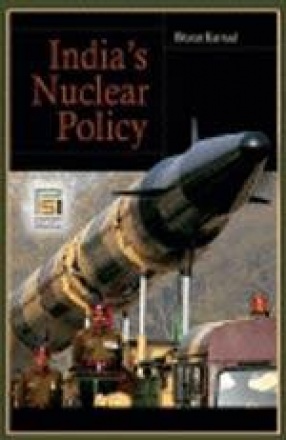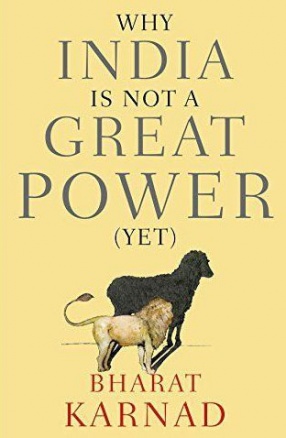This book examines the Indian nuclear policy, doctrine, strategy and posture, clarifying the elastic concept of "credible minimum deterrence" at the center of the country’s approach to nuclear security. This concept, Karnad demonstrates, permits the Indian nuclear forces to be beefed up, size and quality-wise, and to acquire strategic reach and clout, even as the qualifier "minimum" suggests an overarching concern for moderation and economical use of resources, and strengthens India’s claims to be a "responsible" nuclear weapon state. Based on interviews with Indian political leaders, nuclear scientists, and military and civilian nuclear policy planners, it provides unique insights into the workings of India’s nuclear decision-making and deterrence system. Moreover, by juxtaposing the Indian nuclear policy and thinking against the theories of nuclear war and strategic deterrence, nuclear escalation, and nuclear coercion, offers a strong theoretical grounding for the Indian approach to nuclear war and peace, nuclear deterrence and escalation, nonproliferation and disarmament, and to limited war in a nuclearized environment. It refutes the alarmist notions about a "nuclear flashpoint" in South Asia, etc. which derive from stereotyped analysis of India-Pakistan "wars", and examines India’s likely conflict scenarios involving China and, minorly, Pakistan.
ABOUT THE AUTHOR Bharat Karnad
Bharat Karnad, educated in the United States (BA in Political Science, University of California, Santa Barbara, MA in International Relations and Security Studies, University of California, Los Angeles), he is Senior Fellow in National Security Studies at the Centre for Policy Research, New Delhi. He was Member of the (First) National Security Advisory Board, National Security Council, Government of India (and as such, Member of the Nuclear Doctrine Drafting Group); and was formerly Adviser on Defence Expenditure to the (Tenth) Finance Commission. He has been consulted by the Strategic Warfare and Air Concepts Cell, Air Headquarters, Indian Air Force and the Financial Planning and Perspective Planning Directorates, Army Headquarters, and lectures regularly at the National Defence College, College of Naval Warfare, College of Air Warfare, in the programme on nuclear, biological and chemical warfare at the College of Military Engineering, the Foreign Service Institute, and the National Police Academy. His writings on nuclear issues have attracted worldwide attention. Former US President Bill Clinton's Deputy Secretary of State Strobe Talbott described them as 'muscular". Other reputed American South Asia experts have referred to him variously as 'one of India's most prominent civilian hawks', ' the leading theoretician' and ' the most articulate proponent' of nuclear 'maximalism' and as a 'super-realist'. He has published research papers and review essays in professional journals in India and abroad, contributed Chapters to several Indian and international anthologies, and edited the volume, Future Imperilled: India's Security in the 1990s and Beyond (1994).






There are no reviews yet.